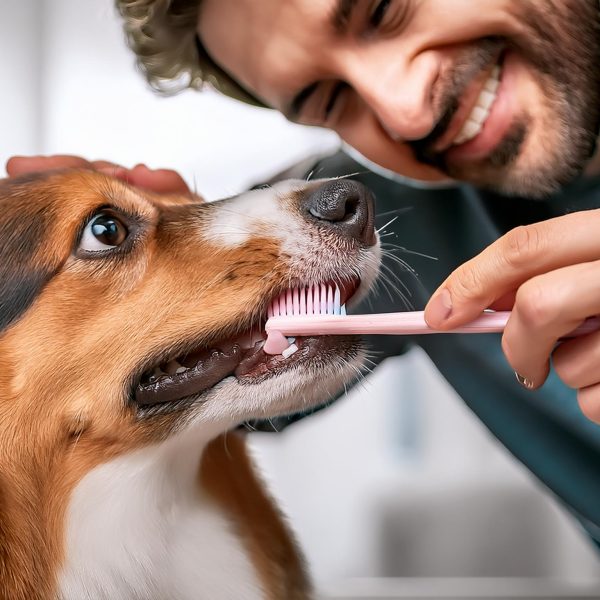When considering the well-being of our beloved furry companions, one crucial aspect that should never be overlooked is their skin health. Similar to humans, the skin of pets serves as a vital protective barrier against various environmental elements, playing a pivotal role in their overall health and happiness. Whether we are talking about dogs, cats, rabbits, or guinea pigs, comprehending and tending to their skin health must be a top priority. This comprehensive article delves into the intricacies of maintaining optimal skin health in pets, discussing the significance of skin issues that can arise, preventive measures to consider, and available treatment options.
Why Skin Health Matters: Beyond Aesthetic Appeal
While a lustrous coat undeniably contributes to a pet’s visual charm, it is imperative to recognize that healthy skin encompasses far more than just appearances. In fact, the skin is the largest organ in a pet’s body, serving as a crucial defense mechanism against external pathogens. Additionally, it aids in regulating their body temperature and facilitating sensory perception. Moreover, maintaining healthy skin is vital for proper hydration levels and the efficient absorption of essential nutrients.
Common Skin Problems Encountered by Pets
Pets are susceptible to a wide array of skin issues that range from minor irritations to more severe dermatological conditions. Some of the common skin problems that pets can experience include:
- Allergies: Similar to humans, pets can suffer from allergies triggered by various environmental factors such as pollen, dust mites, and certain foods. Allergies often manifest as skin redness and inflammation.
- Parasites: Fleas, ticks, mites, and other parasites can cause pets to experience itchiness and discomfort. Persistent scratching and biting can lead to infections and hair loss.
- Infections: Bacterial and fungal infections can affect a pet’s skin, resulting in symptoms such as redness, swelling, discharge, and an unpleasant odor.
- Hot Spots: Also known as acute moist dermatitis, hot spots are localized areas of inflamed and infected skin. They typically arise due to excessive licking, scratching, or biting prompted by an underlying issue.
- Dry Skin: Pets can experience dry, flaky skin, particularly during colder months, leading to discomfort and itching.
- Hair Loss: Excessive shedding or hair loss in pets could signify underlying health concerns like hormonal imbalances or nutritional deficiencies.
- Skin Cancer: Although less prevalent in pets compared to humans, skin cancer can still occur, especially in pets with colored skin or limited hair coverage. Regularly inspecting a pet’s skin is crucial for early detection.
Caring for Your Pet’s Skin Health: Essential Tips
- Balanced Diet: Providing a well-rounded diet that includes fatty acids, vitamins, and minerals is essential for promoting healthy skin and a glossy coat.
- Regular Grooming: Regularly brushing your pet not only helps distribute natural oils and prevent matting but also enables you to spot any skin irregularities early on.
- Hygiene: Bathing your pet using appropriate pet shampoos helps eliminate dirt, excess oil, and potential allergens from their fur. However, be cautious not to overdo it, as excessive bathing can strip the skin of its natural oils.
- Parasite Control: Taking preventive measures against parasites such as fleas and ticks is crucial. Consult with a veterinarian to determine suitable products and establish a parasite control regimen.
- Managing Allergens: For pets with allergies, identifying and managing allergens that trigger reactions is vital. Your veterinarian can assist in pinpointing the sources of allergies and recommending suitable treatments.
- Environmental Enrichment: Boredom and stress can lead to excessive licking or scratching in pets. Providing physical stimulation through playtime and interaction can help prevent such behaviors.
Remember that if you observe any concerning changes in your pet’s skin health or if they require treatments, seeking veterinary care is always advisable.
Tailored Treatment for Pet Skin Problems
When addressing skin issues in pets, there is no one-size-fits-all solution. It is crucial to consult a veterinarian for accurate diagnosis and personalized treatment plans. Depending on the underlying cause, treatment options may include:
- Medications: Veterinarians may prescribe oral medications to tackle infections, allergies, or other skin conditions.
- Therapeutic Shampoos: Medicated shampoos can assist in managing skin problems by soothing irritation, controlling infections, and promoting healing.
- Allergy Management: In cases of allergies, your veterinarian might recommend allergen therapies, antihistamines, or immunotherapy.
- Parasite Control: When parasites are the root cause, appropriate treatments will be prescribed to eliminate and prevent infestations.
- Lifestyle Adjustments: Addressing factors like stress or dietary deficiencies may necessitate making lifestyle adjustments.
Conclusion
Ensuring optimal skin health in pets demands care, regular vigilance, and prompt veterinary attention when needed. The condition of a pet’s skin not only impacts their comfort but also serves as a reflection of their overall well-being. By comprehending the significance of skin health, identifying potential issues, and implementing proactive measures, pet owners can actively contribute to their furry friends’ quality of life, enabling them to lead healthier and more joyful lives.








